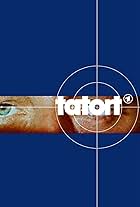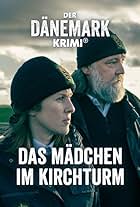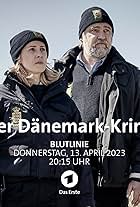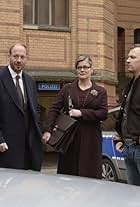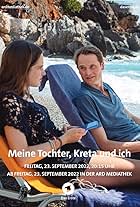Advanced search
- TITLES
- NAMES
- COLLABORATIONS
Search filters
Enter full date
to
or just enter yyyy, or yyyy-mm below
to
to
to
Exclude
Only includes titles with the selected topics
to
In minutes
to
1-50 of 1,287
- An anthology series that follows the work of homicide detectives in Germany, Austria and Switzerland.
- TV SeriesIt tells the story of Alex, a young man who tries to find out the truth about the murder of his father, who was a sniper for the Bundeswehr.
- This lavish historical drama illuminates the story of the world-famous composer from different perspectives.
- Im dänischen Ribe flüchtet eine junge Frau nachts in Todesangst vor einem Mann in einen Kirchturm - ihr Verfolger ist ihr dicht auf den Fersen. Die lauten Hilfe-Rufe des Opfers erreichen das Polizeipräsidium - und damit auch die junge Polizistin Emma (Zoë Valks). Gemeinsam mit ihrer Kollegin Ida Sörensen (Marlene Morreis) macht sie sich auf den Weg - im Kirchturm kommt es schließlich zu einem tödlichen Schusswechsel, bei dem sowohl Opfer als auch Täter sterben. Emma, die die Schüsse abgefeuert hat, ist sichtlich geschockt, will sich aber nicht helfen lassen, möchte am liebsten alles einfach nur vergessen. Entgegen allen anderen glaubt Ida nicht, dass der Fall damit abgeschlossen ist. Die Tote kommt eigentlich aus Kopenhagen, machte angeblich in Ribe ein Praktikum in der Altenpflege - was wollte sie wirklich dort? Und wo ist das Notebook des Opfers? Es gibt viele Ungereimtheiten. Auch Emma scheint etwas zu verbergen. Nach anfänglichem Zögern ist auch Kollege Magnus Vinter (Nicki von Tempelhoff) davon überzeugt, dass hinter diesem Fall weit mehr steckt.
- Under suspicion crime series.
- Closing off a crime scene in the forest with a man's corpse - that underwhelms Ida Sörensen. Until the homicide squad from Esbjerg arrives, the patrol officer confidently expands her job assignment. To the chagrin of her conspicuously bad-tempered colleague Magnus Vinter, she begins investigating on her own. Inspector Frida Olsen is as astonished that Horik Holm was executed with two Viking arrows, as is the family background: The victim is the son of an underworld boss who comes from the tranquil coastal region. When Kort Holm arrives, he leaves no doubt that the perpetrator will be brought to justice. For Ida's colleague Magnus, the case is doubly tricky: not only does he know Holm better than he initially admits. A suspect, his own nephew Bjarne Vinter, is also close to him. Magnus and his colleague Ida must solve the mysterious murder and also protect Bjarne from Holm and his henchman Bech.
- Alcohol: No substance in the world seems so familiar to us and is so incredibly diverse in its effect. Alcohol is available everywhere and this particular molecule has the power to affect all 200 billion neurons of our human brain in completely different ways. But hardly anyone calls alcohol a drug despite its psychoactive and cell-destroying effect. Why do we tolerate the death of three million people every year? Have we turned a blind eye to the dangers and risks for thousands of years? What role does the powerful alcohol industry play with an annual turnover of 1.2 trillion euros in this on-going concealment? The author, who himself enjoys having a drink, looks into the question why we drink at all, what alcohol does to us and to what extent the alcohol industry influences society and politics. He travels around the world from Germany via England to Nigeria to detect aggressive trading practices of the global alcohol industry seeking growth in new markets at all costs. He also visits Iceland, which successfully made the turnaround: Where 20 years ago hordes of drunks roamed the streets, young people today master their need for relaxation and life stimulants without alcohol. The film has no intention to point a moral finger but nevertheless will significantly change the drinking habits of the viewer.
- The music documentary Play Your Own Thing provides a comprehensive history of European jazz. It explores the origins of the US-influenced jazz clubs after the Second World War, the first steps independent of American jazz and the various changes of direction that have repeatedly occurred in the search for that "own voice" that European jazz musicians have helped to form. Featuring the mastery of Chris Barber, Jan Garbarek, Juliette Greco, Stefano Bollani and Till Bronner, to name but a few, the film provides a wealth of styles in jazz. For his third documentary on jazz, filmmaker Julian Benedikt travelled to a wide variety of European countries in search of an all-embracing documentation of European jazz music. His storytelling is not overly sophisticated, nor does he simply reproduce the known clichés; rather the movie engages its audience with very personal impressions of European jazz, past and present.
- "Bach - Eine Weihnachtsgeschichte" is a biopic about the life of german composer Johann Sebastian Bach.
- An unflinching look at the rise and fall of one of the most infamous political figures in US history.
- There's one thing milk stands for - health. It's seen as natural and nutrient-rich. But is it really that healthy? We set out to take a critical look at the milk system. Along the way we'll meet farmers, dairy owners, politicians, lobbyists, NGOs, scientists. The film uncovers surprising truths behind the system. Who profits at whose cost? Does the system have a future and are there alternatives?
- Aelrun Goette's critically acclaimed drama deals with a fatal mother-son relationship and the fear of a bitter truth. Jenny's life with her husband and their seven-year old son Tim seems to be perfect, until she finds a crying Tim in the cellar, when she returns from a party at her friend Sandra's house. The confused boy leads her to a place in a nearby forest, where they find the dead body of Sandra's daughter Luzi. Although realizing that Tim killed the girl, Jenny tries everything to keep secret the truth...
- Overcome by grief at the funeral of her father in 1968, a woman tries to understand the decision that led their parents to settle in Germany after having survived the Holocaust, as well as their inability to escape from the shadow of genocide, denial of Judaism and tortured psychology that is the legacy of their plight as in the case of other survivors like them. Based on the autobiographical novel by Laura Waco.
- An inspiring portrait of Margaret Bourke-White, Martha Gellhorn and Lee Miller, three pioneering journalists who made history as the first female correspondents to report on the Second World War.
- In 1945 Irene, Ewa and Joe were among the nearly 30,000 survivors rescued from German concentration camps to the peaceful harbour town Malmö, Sweden. Here they started life again. In unique archive footage we see 10 year-old Irene at the harbour taking her first shaky steps in freedom. We see newborn Ewa carried from the boat by her mother. And we meet Joe, who arrived as a lonely child without his family. In Harbour of Hope they tell their amazing stories from the moment of liberation to the unsolved mysteries in present time. A film about dealing with war memories, the importance of a helping hand and finding a "harbour of hope".
- In the heathen "Rauhnächten" there is an unbridled exuberance in the former Viking town of Ribe. Chaos reigns even at the police station, where the conscientious patrol officer Ida Sörensen helps out on the night shift. At this moment, nobody thinks of the sadistic serial killer who kidnaps people and starves them to death in the forest. So Ida doesn't recognize Smillla Vestergaad either, who has been missing for days, was able to free herself from her shackles, now appears among all the disguised and drunk in the police station, but hardly gets a word out. When the young woman disappeared a little later, the policewoman found herself exposed to serious accusations from her older colleague Magnus Vinter. Ambitious Commissioner Olsen is certain that there is little time left to find the abductee alive. Regardless of responsibilities, Ida does everything to make up for her fatal mistake. In the case of an unexplained death 20 years ago, she suspects the starting point for the motif of the serial perpetrator, whose murders do not seem to fit into any profile. The fact that Ida dives into the past despite the greatest time pressure sounds completely absurd at first. The desperate policewoman, however, is not deterred and uncovered a tragic secret that was years ago and is now supposed to be atoned for.
- After a flirtation in a store looking for the imposter Frank is taken and to be behind bars. Free again, he tries to earn money in an honest way. One day, he meets the woman from the store again. For her he would do anything. That she works as a prostitute does not bother him. Soon, Frank can not help but return to his old ways and loses more and more its sense of reality.
- The popular reaction to a German museum exhibit detailing the war crimes and atrocities committed by Nazi Germany's regular armed forces is explored.
- Volker can hardly imagine anything nicer than being the father of a daughter. On the other hand, after separating from his wife, he knows far too little about the actual life of 17-year-old Daphne. With the first father-daughter vacation, announced as a trip to Crete's dream beaches, he wants to change that. What the lecturer has considered as an educational program, however, fits little with the interests of the teenager. Clara finds her dad, who talks almost non-stop about the world of the gods, boring to embarrassing. The journey seems to come to a quick, disillusioned end - when Clara meets the handsome bartender Dimitri. An attractive holiday acquaintance is also in the offing with her dad: the attractive Barbara, of all people, is interested in the witty tourist. That could be very nice - if Barbara weren't the fiancée of Manolis, Dimitri's jealous uncle. When he finds out about the flirt, it becomes extremely dangerous for Volker, according to Crete's antiquated and strict code of honour. The expert on ancient drama has to go into hiding - but then suddenly Daphne has disappeared.
- Two people meet, fall in love and everything can go well. But Arndt can't choose Elke. He is married with two children. Each respects his decision, but not for long. Suddenly her dream man is back at the door who has left his wife for her
- The Berlin Philharmonic and National Socialism
